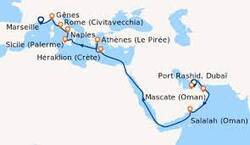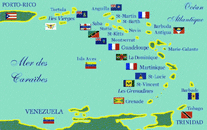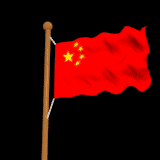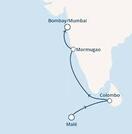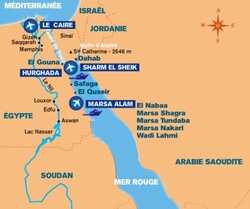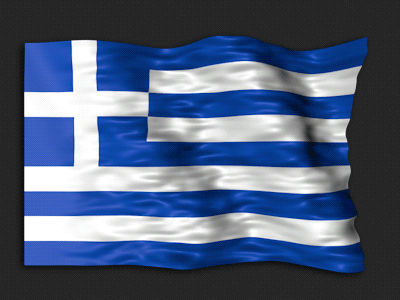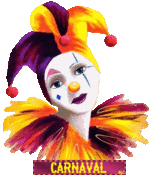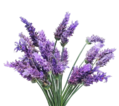-
Par orange8454 le 15 Juin 2009 à 20:53
En anglais : get well soon
En polonais, p.ex: Szybkiego powrotu do zdrowia
en hongrois mielőbbi gyógyulást! "(je/nous te/vous souhaite/ons) de guérir au plus tôt"
en japonais : odaijini ("prenez soin de vous", employé uniquement envers des patients ou personnes malades)
ou
Kuregure mo odaiji ni.
en danois : god bedring
En italien: Buona guarigione
Slowakisch: Dobré/Rychlé uzdravenie
Tschechisch: Dobré/Rychlé uzdraveníFinnish: Parane pian
Estonian: Head paranemist
Russian: Быстрое выздоровление
Swedish: Krya på digen chinois: ni3 zao3 ri4 hui1 fu4 jian4 kang1
Esperanto: Rapide resaniĝu!
en Portugais: melhoras
en Inuktitut: nakuqsigiten néerlandais: 'Word snel beter' ou bien 'Beterschap'
 6 commentaires
6 commentaires
-
Par orange8454 le 15 Juin 2009 à 20:51
japonais : Unzari da.
En slovaque "Mám toho dosť "....ou "Mám toho až po krk"
en espéranto
"Jam sufiĉas!" (ça suffit maintenant)
"Jam estas tro!" (c'est déjà trop)
"Mi ne plu povas elteni tion" (je ne peux plus supporter ça)"Troas!" (c'est trop)
En anglais : I'm fed up
Allemand : ich habe es satt
Russe : (мне) надоелоchinois mandarin
shou4 bu liao3
chinois cantonais
ding5 ng seun6En polonais: Mam tego powyżej uszu
en hongrois par exemple: elegem van (belőle) = j'en ai assez
nem tűröm tovább = je ne supporte plusen néerlandais: ik heb er genoeg van
turc = Yetti be
Yeter beFinnois: sain tarpeekseni
Suédois: jag fick nog 2 commentaires
2 commentaires
-
Par orange8454 le 15 Juin 2009 à 20:47
anglais
There is one missing from the world, and the whole world has emptied.allemand
Ein einziger Mensch fehlt, und alle Welt ist leer.
Italien
Un solo essere vi manca, e tutto è spopolato.en hongrois:
Csak egy ember hiányzik és máris üres a világ.espagnol
sólo un ser está ausente y todo es un desierto (un seul être est absent et tout est désert)
en grec
Sou leipei enas anthropos, kai o kosmos ehei yinei erimosEn Slovaque
Iba jeden človek vám chyba a všetko je vyľudnené 2 commentaires
2 commentaires
-
Par orange8454 le 15 Juin 2009 à 20:45
Italien Non è tutt'oro quel che luccica.
En japonais : (hikatteiru mono wa kin dake dewa nai)
Polonais: Nie wszystko złoto, co się świeci.
Russe: Не всё то золото, что блестит.
Finnois: Kaikki, mikä kimaltaa, ei ole kultaa.
Estonien: Kõik ei ole kuld, mis hiilgab.
Suédois: Det är inte guld allt som glimmar.espagnol = no es oro todo que reluce
Latin : Non omne, quod nitet, aurum est.
Portugais Nem tudo o que brilha é ouro
En hongrois: Nem mind arany, ami fénylik.
Allemand : Es ist nicht alles Gold was glänzt.
Roumain: Nu tot ce zboară se mănâncă.
En vietnamien : Không phải mọi thứ lấp lánh đều là vàng.
en croate: nije zlato sve što sja.
En turc: "Her parlayan altın değildir"
en néelandais: Niet alles, dat glittert, is goud.
En espéranto: Ne chio, kio brilas, estas oro.
En serbe, c'est presque la même chose : Није злато све што сија.
 2 commentaires
2 commentaires
-
Par orange8454 le 15 Juin 2009 à 20:41
Espagnol: nada
Italien: niente
Allemand: nichts
Néerlandais: nietsen croate: ništa
en breton : netra
en danois : ingenting, ikke nogetjaponais : nanimo
Occitan : res (prononcé ré)
En latin : nihil, nulla res
En grec ancien : ουδεν [ouden]
En schwyzertütsch : nüüt
en polonais: nic (ça se prononce "nits)
En danois, ikke noget veut dire littérallement "pas quelque chose"
en grec moderne τίποτα
αs μην του πουμε τιποτα (qu'on ne lui dise rien)
romani : niso
en anglais nothingEn hongrois: semmi = sem "non plus" (is/és "aussi/et" + nem "non") + mi "quoi"
Finnois: ei mikään, ei mitään
Estonien: ei midagi
Russe: ничто, ничего
Suédois: ingenting, inte någontingportugais = nada
gaélique d'Ecosse = càiltchèque : nic [nits]
slovaque : nič [nitch]
roumain : nimicIcelandic: ekkert, neitt
Norwegian: ingenting (identic to Swedish)vietnamien : danh từ
En quechua d'Argentine : mana imapas
En quechua de Cuzco (Pérou) : manan imapas
En quechua bolivien : mana imapis, ni ima, ni imapis
Aymara : ch'usa, ni kuna, janiw kunsa
Guarani : mba'eve, maraveSame du Nord (lapon): ii mihkkige
Dans le nord d'angleterre et en écosse (ou dans le sud pour s'amuser) on entend souvent nout / nowt / nought (naoutte)
En argots anglais il y a aussi: jack (sh...), nada, nil, (sweet) F.A., zero, zilch, zip...En turc : "hiç"
Portugais - nada.
Sanscrit - (akiMcid)
Espagnol - nada.
Anglais - nothing.Occitan languedocien : res (prononcé "ré")
en tagalog: wala
 2 commentaires
2 commentaires
-
Par orange8454 le 15 Juin 2009 à 20:35
Finnish: kippis
Estonian: terviseks
Polish: na zdrowie
Russian: на здоровье
Danish, Norwegian, Swedish: skålEspañol: ¡salud!
Allemand: prost!
Italiano: salute!Romanian: "Noroc!"
Swedish, Danish, Norwegian: "Skål!"
Brazilian Portuguese: "Saúde!"Basque: topa ! / osasuna !
Vietnam : chúc sức khoẻ anh !
Hebrew : לחיים (leh'ayim)
Arabic : باسم الله (bismilla)
Farsi : في صحتك (fî sihetak)
Japanese : (actuel); (ancien) (kanpai)
Chinese : (gan bei)
German : prost !sicilien (in Sicilian), on peut dire "saluti!".
Ensuite, en norvégien (in Norwegian), c'est "skål!" et en islandais (in Icelandic)"skál!".Hungarian: egészségedre!
Quechua from Cuzco (Peru) and Bolivia : Ukyaykusun!
Quechua Ancashino (Peru) : Upurkushun!Allemand Prost ou Prosit!
en breton c'est : yec'hed mad
en portugais: "saúde !"
Bulgarian : на здраве !
en breton du Morbihan: grès d'eoh, grès mat d'eoh, joé d'hou kalon, joé d'hou koug, joé d'eoh
Irlandais: sláinte
Gaélique d'Ecosse: slàinte mhath
Manx: slaaint (si ma mémoire est bonne).Serbian Cheers: "živeli or živjeli"
Good appetite: "prijatno"
Swiss German:
Cheers: "Prosit" from Latin
Good appetite: "Guten Appetit"
Polish:
Cheers: "na zdrowie"
Good appetite: "smacznego"Korean :
(geon bae)
(wi ha yeo)
Icelandic and Faroese : skál !saúde (portuguese)
Greek: Στήν ύγειά σου [stin iyia sou]
Chinese : (gan bei)
néerlandais: proost
Albanaian: Gazuar
Brazilian Portuguese: bom Apetite!
en corse : salute (pr. "sa-ou-dé")
en turc= Şerefe
ça veut dire "à l'honneur"En serbe, c'est : Живели (živeli)
En bosniaque et croate, c'est : živjeli
 votre commentaire
votre commentaire Suivre le flux RSS des articles de cette rubrique
Suivre le flux RSS des articles de cette rubrique Suivre le flux RSS des commentaires de cette rubrique
Suivre le flux RSS des commentaires de cette rubrique











